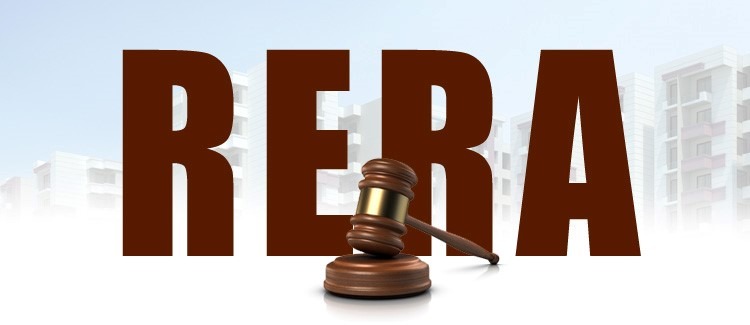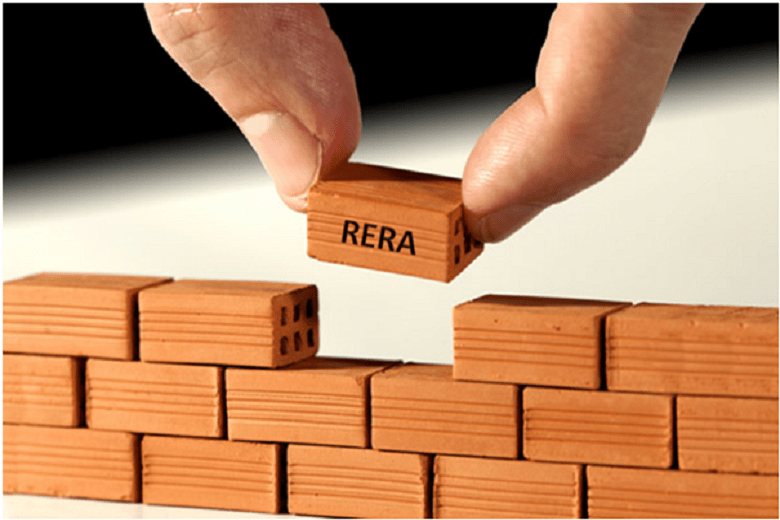RERA or the Real Estate (Regulation and Development) Act, 2016 was a major move in the Indian real estate sector, ushering in some much needed transparency into the sector, protecting the rights of homebuyers and also increasing developer accountability overall. As per the salient features of RERA, several key points emerged that homebuyers should definitely know more about.
These include the following:
- New and ongoing project registration- Real estate developers are required to register ongoing and new projects where more than 8 apartments have been proposed for development in any phase of the project or where total area exceeds 500 square metres. They have to register these projects under RERA although those who have their occupation certificate/completion certificate issued are not required to apply.
- Fund allocation- Developers have to keep 70% of the money that they get from homebuyers in a separate account which can only be deployed for construction and land costs for the project. Withdrawals will be allowed from this account only on the basis of the work that is completed on the project and post certification from an architect, chartered accountant and engineer. This will account will be audited every 6 months.
- Land title- The developer has to give clearly worded written affidavits which state that the legal title of the land for the project is clear and has legitimate documents to prove ownership. A written affidavit of the developer is also required, stating that the land in question is free from encumbrances.
- Information Disclosure- Post registration under RERA, real estate developers have to periodically submit project details on the RERA website.
- Withdrawal of buyers- Real estate developers have to specify the duration for their projects and handover timelines in written affidavits. In case projects go beyond this date, buyers can withdraw from the same and get the full amount paid till then in compensation without the need to lodge any complaint. Buyers have the right to get full refunds even in situations where the registration of the developer has been cancelled.
- Interest payable on delays- In case of delays in project handover, RERA has proposed a fine up to 10% of the estimated project cost or imprisonment for 10 years or both. The rate of interest will also be the same in case of delays in payments on part of the buyer.
How to check whether your project is RERA registered
RERA is still in the process of implementation throughout Indian States. Some Indian States already have functional and active RERA portals running while others are in the process of implementation currently. Let us take an example of what you have to do if you are in Maharashtra where MahaRERA has been implemented very successfully.
- You have to first visit the official MahaRERA site and then choose the Registered Projects and write the name of the project. Or else, you can write the name of the real estate developer or builder as well.
- When you enter the name of the developer, a list of registered projects will be coming up on the screen. Once you find your desired project and click on the same, you will get a new page which has information like the developer’s name, proposed and revised completion dates, name of the project, any litigations if they are there, address of the project site (full address), open area available for recreation, total area, built-up area based on FSI (floor space index) approved, common areas, amenities and facilities, details about proposed apartments with their carpet areas and also the number of garages/covered parking areas.
- You can then scrutinize the documents which have been uploaded by the real estate developer and these include the allotment letter proforma, legal title report, agreement for sale, building plan approval, encumbrance details, commencement certificate, approval of layout and certificates from architect along with status of the formation of a housing society/similar entity.
- You can also view the earlier track record of the real estate developer and the projects that have been executed in the last 5 years to ascertain the company’s overall reputation and credentials. You will also get an opportunity to find out whether the directors of the real estate firm have any cases that are pending against them.
- Check for any litigation details of the project. Litigation linked to environmental clearance could be there and you should firmly stay away from such projects as per experts. In case you are booking with an agent, check whether the agent has RERA registration. Do not deal with agents who are not registered and also keep in mind the rule that people operating without RERA registration are liable to pay fines of Rs. 10,000 for each day of the default continuing or 5% of the apartment/plot/building cost.
- Get the model agreement on the site and check once more whether your agreement with the developer is in sync with the agreement that has been suggested on the RERA site.
- Check the possession date that has been given by the developer. In case the developer does not hand over the housing unit on the specified date, then he/she will have to shell out interest on the amount paid till the property is delivered. This interest has to be paid to the buyer based on the agreement. In case interest is not being paid by the developer to the buyer, the latter can apply for redressal with MahaRERA. The builder can also file an appeal before the MahaRERA against the buyer for not making project payments in a timely manner based on the agreement.
- In case the developer has already sold more than 51% of apartments in a project, he/she has to form a housing society.
- Make sure you verify the title document, LoD (letter of disapproval), commencement certificate and IoA (intimation of approval) very carefully. These are the documents required by builders prior to commencing on their projects.
All complaints made will have to be addressed and solved within 60 days from the filing date under the RERA framework. MahaRERA has also established 10 conciliation benches in Mumbai and 5 such benches in Pune for instance where disputes between homebuyers and developers are resolved informally and also amicably with benches having members from consumer organizations and real estate developers’ organizations. The conciliation cost is just Rs. 1,000 with no legal costs coming into the picture.






